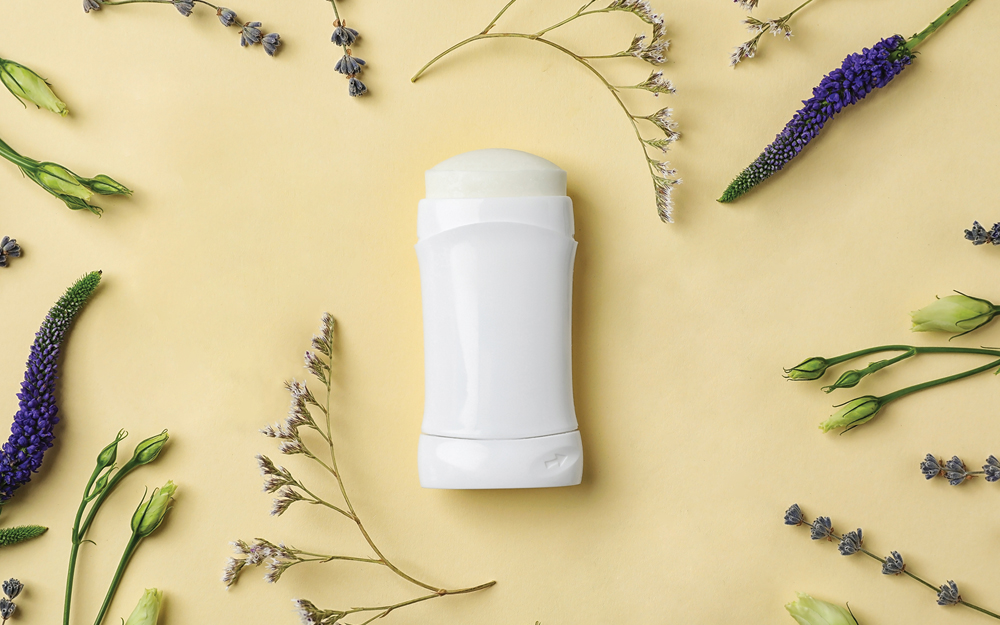Sniffing Out the Truth About Natural Deodorant
Date
November 14, 2022
Credits

Date
November 14, 2022
Credits
Medical providers featured in this article
In Brief
{{cta-block}}
It’s no secret that natural products often imply they’re safer or healthier than their traditional counterparts. When it comes to deodorants and antiperspirants, you’re right to be on guard. Claims that natural deodorants are safer or healthier don’t pass the smell test.
"Some of the enthusiasm for natural deodorants seems to be driven by fears and myths that have been repeatedly debunked,” says Nabeeha Siddiqui, MD, a Cedars-Sinai primary care physician in Culver City. "You won’t find any solid scientific or medical evidence showing these deodorants are better for you.”
Picking a natural deodorant because you like its scent or how it works for you is a valid choice, she says. But being scared by dubious claims, well, stinks.
Some of the enthusiasm for natural deodorants seems to be driven by fears and myths that have been repeatedly debunked."
- Nabeeha Siddiqui, MD
FACT: ANTIPERSPIRANTS ARE SAFE, EVEN IF THEY CONTAIN ALUMINUM.
Rumors persist that antiperspirants containing aluminum are linked to breast cancer and Alzheimer’s disease. The U.S. Food and Drug Administration (FDA), American Cancer Society and National Cancer Institute conducted independent investigations and agree that there is no credible scientific evidence that breast cancer and antiperspirants are linked. Studies also debunked the link between aluminum in antiperspirants and Alzheimer’s.
Unlike natural deodorants—which don’t block sweating, but instead mask or prevent odor—antiperspirants are considered over-the-counter drugs that are subject to FDA regulation.
FACT: "NATURAL" IS AN EMPTY TERM.
The FDA has never established a regulatory definition for “natural” in cosmetics products like deodorant. Any personal care product can claim to be “natural,” Dr. Siddiqui notes.
FACT: EVEN "NATURAL” PRODUCTS CAN POTENTIALLY CAUSE SKIN REACTIONS.
Skin irritation and allergic reactions are the most common health issues caused by antiperspirants and deodorants—and they can happen with traditional or natural products, Dr. Siddiqui says.
Ultimately, what you swipe under your arms to feel comfortable—whether it’s an aluminum-containing antiperspirant, natural deodorant or nothing at all—is a personal choice. Check labels to sniff out any ingredients you have known sensitivities to and pick the one that works best for you.





